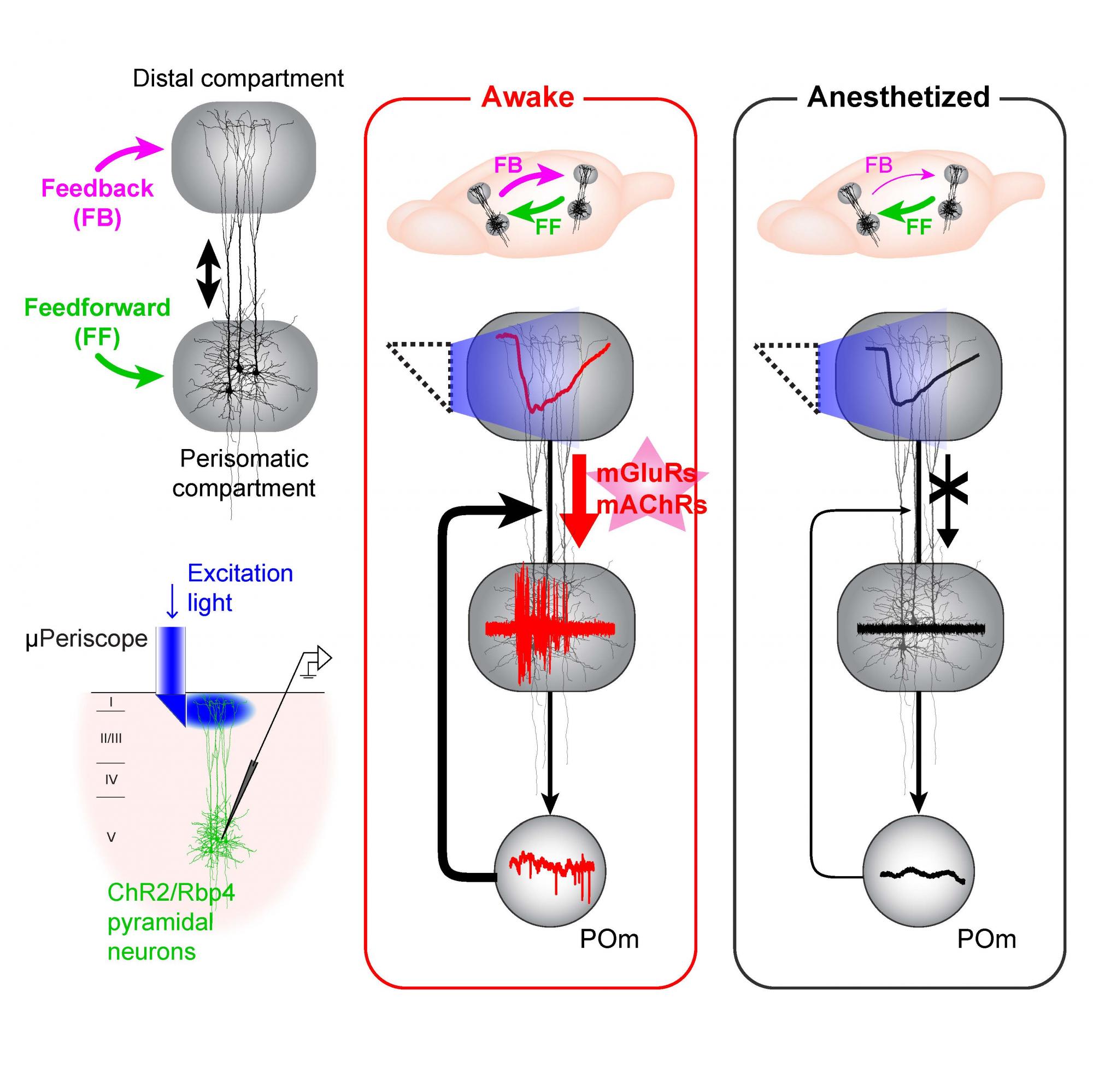Neuroscience Laboratories
Brain Engineering Laboratory
Keywords:
Dendrites, Cerebral cortex, Thalamus, Behavior, Higher brain functions, Cognition
Our laboratory aims to understand the fundamental mechanisms of brain computation—dendrites as the particular focus—using a unique approach combining cutting-edge technology and our original tools

The graphical abstract of the paper published in 2020 from Cell. We found that general anesthesia decouples the flow of information between cortical layer 5 pyramidal neuron dendrites and their cell bodies, providing a cellular mechanism that unifies two theories of consciousness.
Members
| Prof. Mototaka SUZUKI | m.suzuki.fbs[at]osaka-u.ac.jp |
|---|---|
| Asst. Prof. Naoko INABA | n-inaba.fbs[at]osaka-u.ac.jp |
- ※Change [at] to @
Our ideal candidate (as a graduate student)
The brain is an extremely beautiful and complex structure, an organ that still holds many mysteries. For difficult problems, completely new hypotheses and technologies can sometimes lead to breakthroughs. We therefore welcome the participation of students and researchers who are not afraid to adopt novel ideas, new and original technologies, and who are willing to boldly take up the challenge of solving difficult brain problems.
Contact
Brain Engineering Laboratory, Graduate School of Frontier Biosciences, Osaka University, 1-3 Yamadaoka, Suita, Osaka 565-0871 Japan.
E-mail: m.suzuki.fbs[at]osaka-u.ac.jp (Prof. SUZUKI Mototaka)
- ※Change [at] to @
